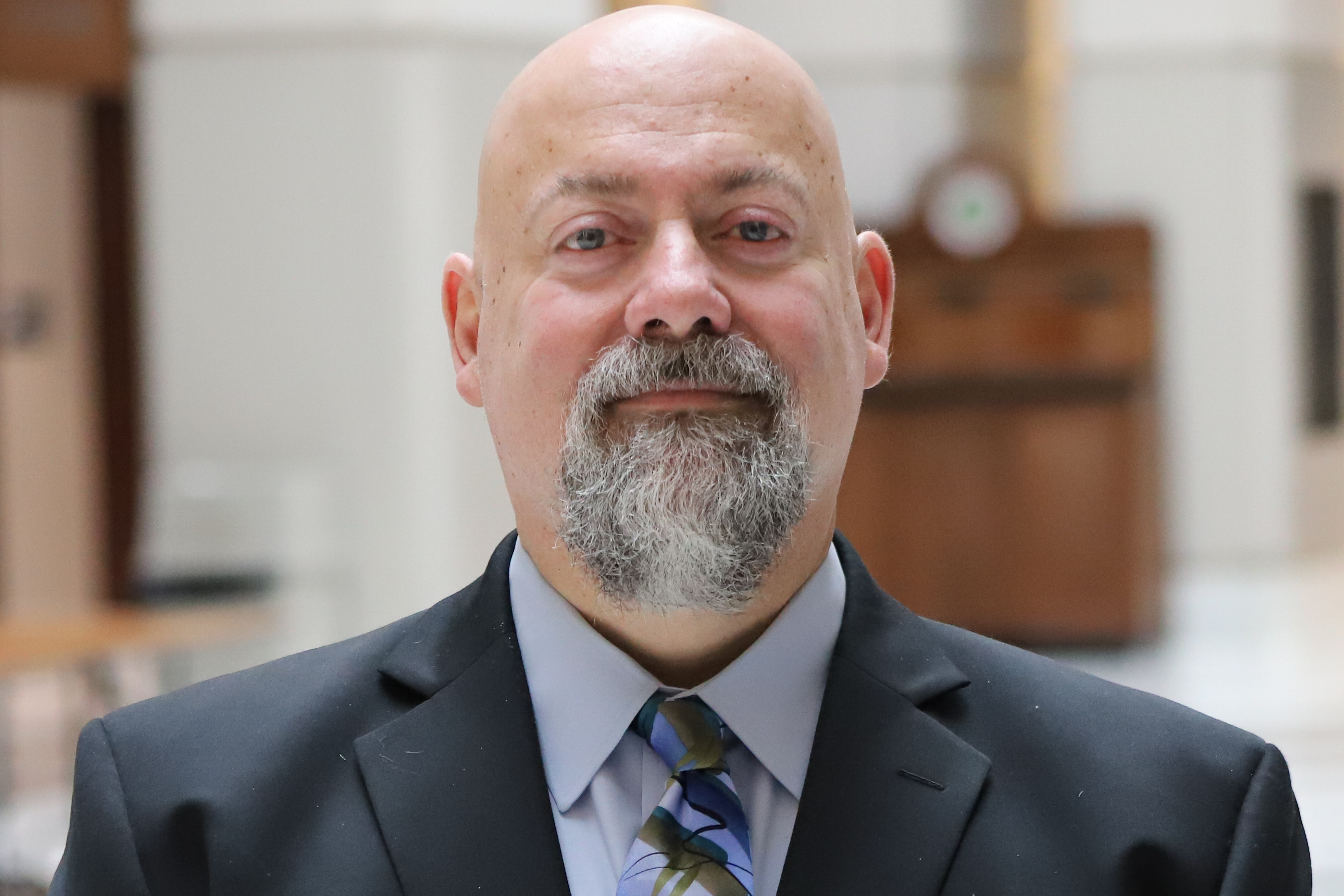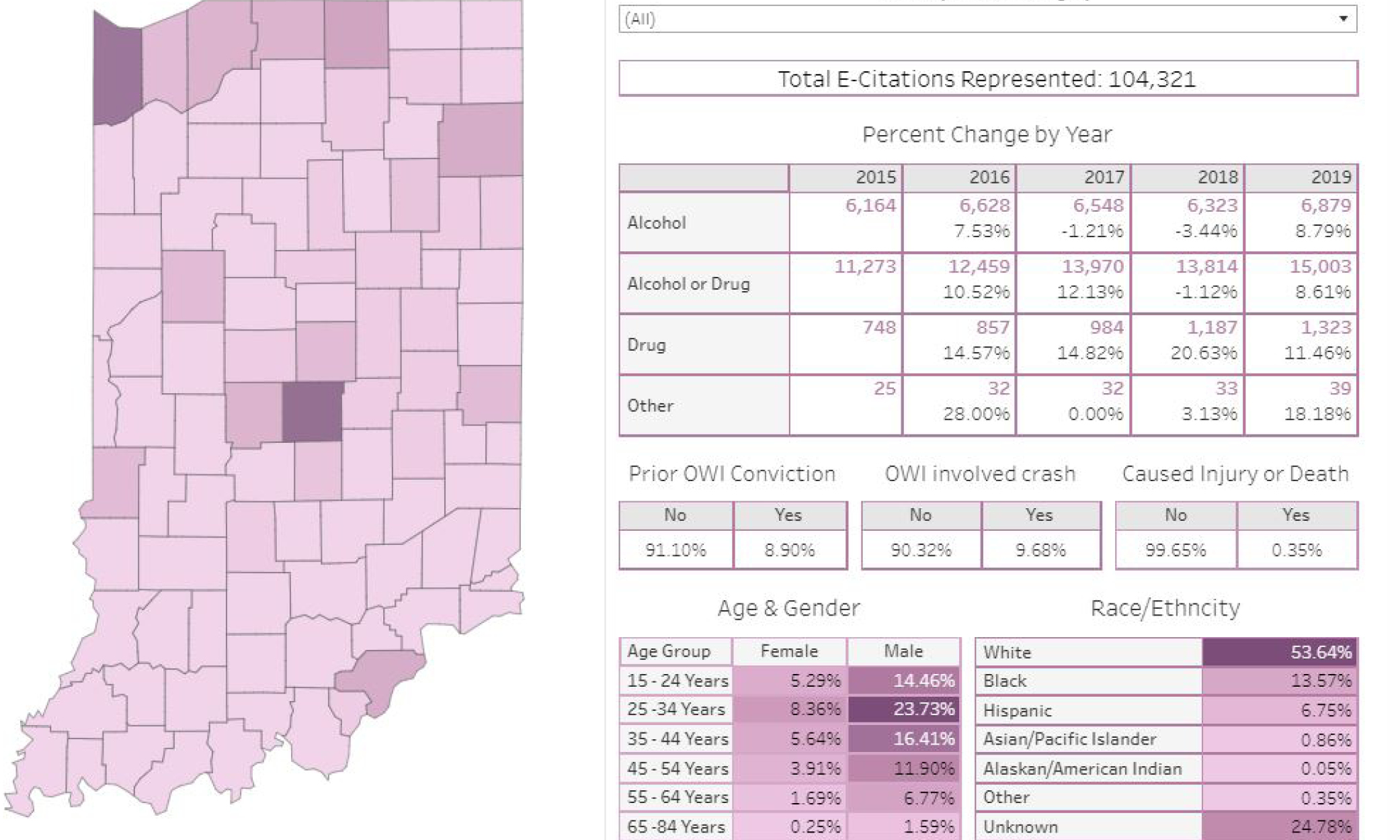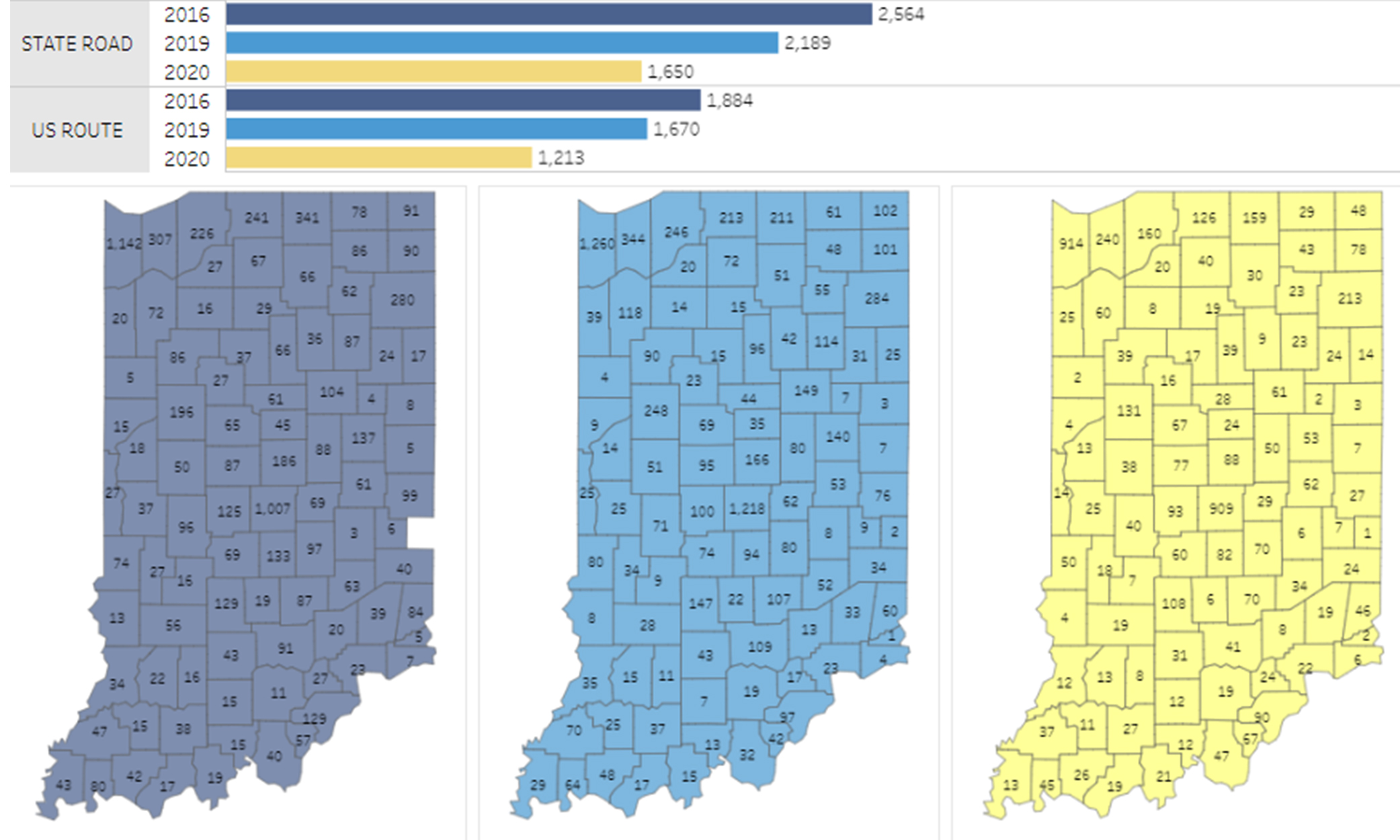Training and Other Programs
CJI’s Traffic Safety Division continues to partner with law enforcement agencies throughout the state to increase knowledge on various traffic safety topics. As such, the division oversees a variety of initiatives and training programs working towards this goal, including:
- Standard Field Sobriety Test (SFST) Instructor Development Course
The Standardized Field Sobriety Test (SFST) Instructor Development Course is a comprehensive instructor course. It’s five days and designed to impart the student-instructor with the knowledge and skills for instructing the SFST Course. The course does not solely focus on teaching SFSTs. The course concentrates on effective general teaching skills then incorporates the SFST curriculum. The 40 hours of classroom training include, but are not limited to, the following subjects: concepts of adult learning and teaching; teaching techniques; basic public speaking; effective classroom presentations; standardized field sobriety testing curriculum; drugs that impair driving curriculum; managing a live alcohol workshop and student instructor presentations of SFST curriculum sessions.
- Advanced Roadside Impaired Driving Enforcement (ARIDE)
Advanced Roadside Impaired Driving Enforcement (ARIDE) is intended to bridge the gap between the SFST and DEC/DRE programs by providing officers with general knowledge related to drug impairment and by promoting the use of DREs in states that have the DEC Program. One of the more significant aspects of ARIDE is the required student demonstration of the SFST proficiency requirement. The ARIDE program stresses the importance of the signs and symptoms of the seven drug categories. This course will train law enforcement officers to observe, identify and articulate the signs of impairment related to drugs, alcohol, or a combination of both, in order to reduce the number of impaired driving incidents as well as crashes which result in serious injuries and fatalities. This course will educate other criminal justice professionals (prosecutors, toxicologists, judges, etc.) to understand the signs of impairment related to drugs, alcohol, or a combination of both, to enable them to effectively work with law enforcement in order to reduce the number of impaired driving incidents as well as crashes which result in serious injuries and fatalities.
- Drug Recognition Expert (DRE)
The Drug Evaluation and Classification Program (DECP) trains police officers and other approved public safety officials as Drug Recognition Experts (DREs) through a three-phase training process. The training relies heavily on the Standardized Field Sobriety Tests (SFST’s), which provide the foundation for the DEC Program. Once trained and certified, DREs become highly effective officers skilled in the detection and identification of persons impaired by alcohol and/or drugs. DREs are trained to conduct a systematic and standardized 12-step evaluation consisting of physical, mental and medical components.
- Law Enforcement Phlebotomy Program (LEPP)
The Indiana Criminal Justice Institute offers a Phlebotomy training program for Indiana Officers. Vincennes University collaborates with the Indiana State Department of Health and the Indiana State Department of Toxicology for the training program.
This program provides Law Enforcement Phlebotomy (LEP) officers with specific policies and procedures that offer guidance for agencies wanting to adopt the program. The law enforcement phlebotomist will work under the direction of policies signed by a physician at the Indiana Department of Health. In the class, we qualify the officers to draw blood. Indiana Code 9-30-6-6-6 (i-k) IGA | 2024 Indiana Code gives the officer the authority to draw blood.
- Child Passenger Safety (CPS)
The Child Passenger Safety Specialist (CPSS) Program mission is to serve as the primary point of contact for all child passenger safety (CPS) efforts in each region; by serving as mentors to technicians, supporting permanent fitting stations (PFS), provide assistance accessing CEU's and completing required elements for recertification, including seat checks and community events.
Each CPSS is expected to possess the knowledge and professionalism to accomplish this mission in their assigned region.
- Crash Scene Mapping
The Unmanned Aerial Systems (UAS)-Based Crash Scene Mapping workshop provides information about crash scene marking, mission planning, hands-on flight exercises, and an overview of the Purdue UAS Data Processing Center funded by the Indiana Criminal Justice Institute. This workshop demonstrates techniques and field procedures to accurately and efficiently document crash scenes using photogrammetry from UAS.
- IMPACT Teen Drivers
The Indiana Criminal Justice Institute is partnering with Impact Teen Drivers (ITD) to address the number one killer of teens in America—reckless and distracted driving. ICJI's sponsorship and support allows ITD to make its programs and resources available to first responders, educators, health professionals, and other community advocates. Impact Teen Drivers programs and resources outline the dangers of reckless and distracted driving, the importance of good decision-making behind the wheel, evidence-based strategies, and the necessity of understanding and following the Graduated Driver Licensing law so students can keep themselves and their friends safe on Indiana roadways.
- Traffic Crash/Traffic Homicide Investigation
The At-Scene Traffic Crash/Traffic Homicide Investigation course prepares participants with the necessary skills to conduct a thorough traffic crash investigation and properly document their findings for courtroom presentation.
In the 80-hour class, presenters show the proper procedures for measuring, scale diagramming, and photographing in order to record physical evidence and essential facts available only at the crash scene. Participants will learn the fundamentals of mathematics, physics and engineering as they pertain to crash investigations and the proper mathematical equations to apply for the type of crash being investigated. Finally, participants will learn to analyze the information to determine what happened before, during, and after the collision.
- Project LOVE
Project L.O.V.E. (Law Officer Voucher & Enforcement) is a program designed specifically for law enforcement to save children from serious injury and death in motor vehicle crashes. The voucher provides families with education on proper use and installation of child restraints. It may also provide child restraints if certain circumstances are met.
- Ignition Interlock
CJI has been charged with establishing and implementing regulations for ignition interlock service centers and installation technicians, the installation of ignition interlock devices, requirements for the removal of an ignition interlock device, and administrative procedures for the denial, suspension, or revocation of a certification.
- Roadside Oral Fluid Program
CJI's Roadside Oral Fluid Program was created as part of the “Great Lakes, High Stakes” project, in partnership with the National Highway Traffic Safety Administration’s Region 5 Office, to address the emergence of drug-impaired driving taking place on Indiana roads. Through the agency's Traffic Safety Division, CJI is equipping law enforcement officers with a new roadside tool, known as the SoToxa Mobile Test System, to identify and keep drug-impaired drivers off the road.










